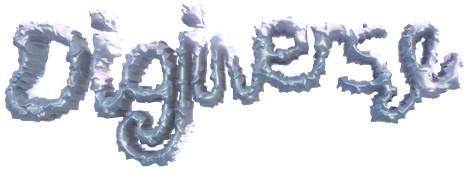Is there a mommy issues epidemic?
Digi x i-D on the rise of mother issues content

2023-03-15
We spoke to i-D to give some insight into why there has been an uprise in content surrounding mother issues by uncovering the current landscape of feminism, the meaning of toxic masculinity and how it differs from father issues.
i-D: Why do you think we have seen such an upswell in discourse/content around mother issues (Milf Manor, "stop raising him he's not your son" via Florence Given, pregnancy/motherhood imagery at London Fashion Week etc)?
Digi: There are three key intersections in culture that are driving our mommy issues:
- Firstly, for the last few years young gender expansive feminism has provided more space for all genders to explore different power dynamics. Everyday young women and femme celebrities are reframing representations of pregnancy as a powerful state-of-being; just think of Rihanna hovering over the Super Bowl this year while singing “B*tch Better Have my Money,” or Beyonce’s incredibly sexy pregnancy photos. Pregnancy isn’t a state of fragility anymore, it’s a powerful, mysterious act of pure strength. Women have always known this, but finally pop culture has caught up.
At the same time, young men are having their equivalent to the daddy moment, embracing the idea that they want someone to nurture and take care of them. We so often see this in the thinly veiled irony of sh*tposting through Mommy GF memes. Even though this originally started a few years ago in sh*tposting circles, it came to really define men’s humour around the uncertainty of the pandemic, especially as men’s mental health conversations have begun to encourage men to show more vulnerability. Men want to be nurtured too, so as their equivalent to the daddy moment, many young progressive men are reimagining the power in the idea of being a simp, like Yung Gravy banging on about his absolute love of MILFs.
- Mainstream critiques of toxic masculinity coupled with the rise of #TherapyTok means that women have more language than ever to describe, unpick, and diagnose toxic male behaviour. Women are so much more emboldened to call out men they’re dating for pushing traditional values and expectations onto them, and have better language to express these dynamics. The mainstreaming of incel culture has given more fuel to the fire, with progressive young women pushing back on incel ideologies by diagnosing unresolved mommy issues at the core of ongoing misogyny.
- Lastly, the slow undercurrent of culture has finally accepted that moms of all ages are hot. Body positivity and body neutrality have helped to push the conversation around the de-stigmatisation of ageing and increased representation of MILFs. Hollywood’s (slow) push for inclusion means our elder stateswomen in the movie business are getting bigger, better roles, and coverage of both their prowess as actors – and their sex appeal – has widened. For the last few years we’ve seen Michelle Yeoh becoming a fashion icon in her 60s, and beauty brands like Charlotte Tilbury signing Joan Collins, among many others.
i-D: Do you think this has to do with reappraisals of heterosexuality from women and their increased awareness that male partners may expect forms of gendered labour (cleaning, personal care, emotional labour, management of finances, household management etc) as a result of unresolved mother issues?
Digi: I think it’s less about women’s pushback on domesticity, and more about how we’re representing the power and strength of motherhood at a time when masculinity is in true crisis. It’s more about young men having the space to be the nurtured simps in this new picture of empowered motherhood, without “losing” their masculinity. For instance, when Rihanna’s 2023 Vogue cover with A$AP Rocky came out, trad men and incels had a heyday emasculating A$AP rocky for “letting” Rihanna steal the limelight as he followed behind, holding their child. Toxic masculinity is actually working against this somewhat utopian ideal of men truly being able to be the simps that they are. As a result, honouring and platforming the strength and sex-appeal of motherhood is now more associated with positive masculinity, whereas mommy issues are for the incels.
i-D: How does the depiction of mother issues in the 2020s differ from the depiction of daddy issues in the 00s and 10s?
Digi: Daddy issues in the 00s and 10s (and to some extent, to the present) revolved around the weaknesses of women, especially their instability, incapability, or volatility. It was often used as a tool for men to invalidate women’s experiences at a time when popular culture loved to represent fathers as emotionally incompetent, like the “Bumbling Dad” trope, while representing mothers as their long-suffering dependents. Even when reclaimed by youth culture, daddy issues in the 00s and 10s intersected with the Manic Pixie Dream Girl aesthetic, which still served to highlight the power men had over women.
Now, mommy issues are actually much less critical of men, since we’re also asking men to become more sensitive and inviting them into feminist spaces more than ever before. With our new and more-fluid generation of youths growing into a more open space for gender expression, I think there’s actually slightly less pathologization of men who just want to be a simp for their Mommy GFs.
Read full article by Megan Wallace here.
✨ Contributing Fairies
- Karen Correia da Silva (they/them), Director of Strategy and Head of Fairy Futures
For more content like this, explore the rest of the Digiverse, or connect with us on TikTok or Instagram. If you’re a brand or business and want to inspire your audience in innovative ways, reach out to our strategic & creative lab eve@thedigitalfairy.co.uk

Welcome to the Digiverse, your portal to internet enlightenment.
From IRL to URL, digest the best of algorithm-driven culture – news, trends and insights – powered by The Digital Fairy.









